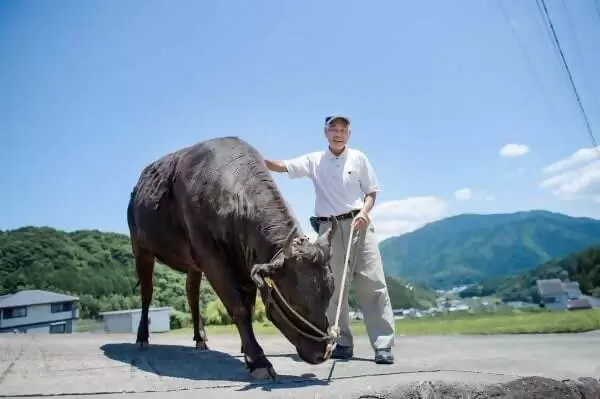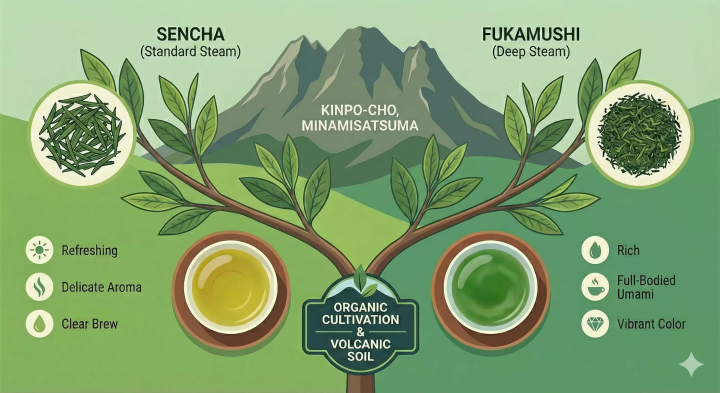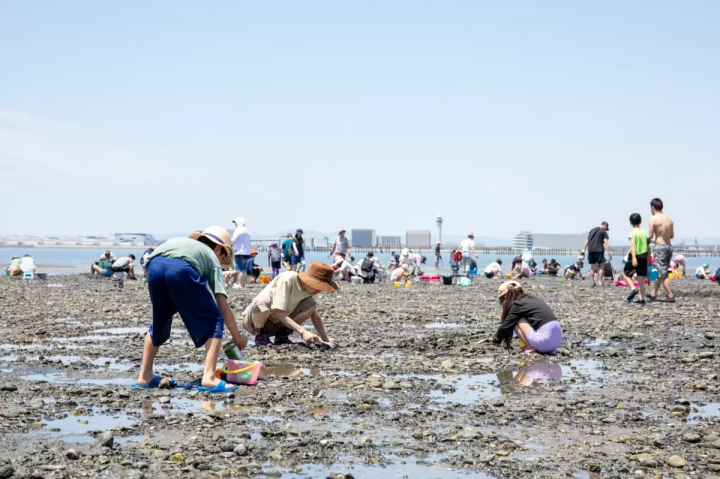A journey to encounter the beautiful scenery of Kanagawa and Japanese culture - Tokaido GREEN Journey -

The International Horticultural Expo 2027 (GREEN×EXPO 2027) will be held in Yokohama, Kanagawa Prefecture. We will introduce a model route starting from Yokohama that will allow you to experience nature, beautiful scenery, and Japanese culture.
This content was produced by JTB Corporation under contract with the Kanto Regional Transport Bureau.
Model route introduction
This time, we will introduce the main areas on the model route through Kanagawa.
Yokohama
Since opening its port in 1859, Yokohama has developed into an international port city that symbolizes the modernization of Japan. Characterized by sophisticated streetscapes and a cosmopolitan atmosphere, the city has fostered a unique culture that fuses tradition and innovation. With easy access and a wide range of tourist attractions, Yokohama is a popular tourist city for both domestic and international travelers.

Photo by Adobestock
Mt. Oyama
Oyama is blessed with abundant nature and is located within the Tanzawa-Oyama Quasi-National Park. It is easily accessible from central Tokyo and Kanagawa Prefecture, and it takes about 60 minutes by train from Shinjuku to Isehara in the Oyama area. You can enjoy traditional tofu dishes, local sake, and crafts such as Oyama tops. The lodging town and approach to the shrine retain a historic atmosphere, making it a power spot where you can experience the condensed essence of Japanese nature and culture.

Photo by Adobestock
Odawara
Odawara is a city rich in history in western Kanagawa Prefecture. It is easily accessible from Tokyo, about 30 minutes by Shinkansen, and is a tourist base close to Hakone and Yugawara. During the Edo period, it flourished as a post town on the Tokaido road, and historical sites are dotted around Odawara Castle. It is an attractive tourist destination where you can enjoy a fulfilling cultural experience, with streets that blend Japanese tradition and modernity.

Photo by Adobestock
Let's take a two-day, one-night trip to experience nature, beautiful scenery, and Japanese culture!
About 30 minutes by taxi from Yokohama Station
Sankeien Garden

Photo by Adobestock
Sankeien is a vast Japanese garden covering 175,000㎡ in Yokohama. Historical buildings such as three-story pagodas and teahouses that were relocated from Kyoto and Kamakura have been cleverly arranged to make the most of the undulating terrain. Seasonal flowers and trees further enhance these ancient buildings, creating a space where you can enjoy the traditional beauty of Japan.
In February 2007, the entire garden was designated a national site of scenic beauty, indicating that Sankeien is recognized as being of particularly high academic and artistic value among the many gardens in Japan.

Photo by Adobestock
The appeal of Sankeien is not only its beauty, but also the opportunity to experience Japanese culture.
A popular plan is one that allows you to wear a kimono and have your picture taken in the garden, especially for foreign tourists. With this plan, you will be dressed in a kimono at the hotel, then head to Sankeien Garden in a private car. An English-speaking photographer will accompany you and take your picture at beautiful spots in the garden.


Additionally, a tea ceremony experience is also included, allowing you to gain a deeper understanding of traditional Japanese culture.

Don't worry if you're new to tea ceremony. A professional Japanese tea instructor will give you a thorough lecture.

This experience is more than just sightseeing; it is a valuable opportunity to experience Japanese culture. Photos taken in a kimono with the beautiful garden as a backdrop will be a wonderful memory of your trip to Japan. Sankeien is a special tourist spot in Yokohama where you can experience traditional Japanese beauty and culture all at once.
In the evening, we will travel to Mt. Daisen (about 60 minutes by taxi) and stay at a temple lodging.
Candlelight yoga at a temple lodge in Mt. Daisen
Shukubo are lodging facilities for worshippers at temples and shrines. Originally a place for monks and worshippers to purify their bodies and minds, they are now widely accepted by general tourists as well. They offer cultural experiences and comprehensive services, allowing you to enjoy a unique trip staying at a shrine or temple. They are gaining popularity as a new type of lodging facility that meets the needs of tourists.
This time we will be staying at Furumiya Ryokan.

From here, we will introduce the accommodation plans at Furumiya Ryokan.
The tradition of the Oyama pilgrimage is carried on by "ko" (groups of pilgrims) and "sendoshi" (leaders), and temple lodges are dotted along the approach to the mountain. Furumiya Ryokan is a long-established temple lodge with over 400 years of history, facing Tofuzaka Hill. Inside the building, you'll find a shrine and a "board maneki" (a wooden platform where you can sit and enjoy the traditions and history of Oyama). The hotel offers a historic lodging experience, where you can relax in a Japanese-style room and taste the famous Oyama tofu.

I make my own yuba and eat it.

Tofu is used in a variety of dishes, all of which are delicious.
After the meal, experience a fantastic night candle yoga session.
A program to calm the mind and body in a tranquil setting.
There is no strenuous activity, so you can feel comfortable participating even after a meal.


Instructor: Yukie (A certified instructor of the American-born self-healing dance program Nia. She teaches to a wide range of age groups, from high school students to people in their 80s.)
The next morning, we finally head to Oyama Afurijinja Shrine.
Mt. Daisen Morning Yoga
Oyama Morning Yoga is a program that combines unique culture and nature and can be experienced at Oyama in Isehara City, Kanagawa Prefecture. This sacred mountain, 1,252 meters above sea level, is known for its beautiful pyramid-shaped mountain and natural beauty throughout the seasons, offering spectacular views.
This program is a modern take on the ancient tradition of "Oyama Pilgrimage." Participants will hike through the rich natural surroundings as they make their way up to Oyama Afuri Shrine Shimosha. The climb takes approximately 90 minutes.


You may encounter various situations while climbing.
The view after arriving. Your heart will be filled with a sense of accomplishment and a magnificent view.

Enjoy yoga in the shrine grounds. Stretch your tired body to relax.


Instructor: TAKA (An unusual career path change from martial artist to yoga instructor, who has made "regional development through yoga" his life's work.)
This plan is available as an overnight plan or a day trip plan. If you choose the overnight plan, you will stay at Furumiya Ryokan (a temple lodging) the night before and experience candlelight night yoga in the evening. The next morning, you will start hiking early and meet up with the day trip participants.
This is a unique experience that beautifully combines traditional Japanese mountain worship with modern yoga.
You can refresh your mind and body in the beautiful natural surroundings and immerse yourself in Japanese culture.
It is designed to be easy for even beginners to participate in, and is a rare opportunity to experience Japanese spirituality and health methods all at once. Please rest assured that it has no religious connotations.
It will be an unforgettable experience for travelers seeking nature, culture and wellness.
After yoga, we head to Odawara.
It takes about 60 minutes by taxi or about 1.5 hours by train and bus to get to Soga Plum Grove in Odawara.
Odawara (Plum Festival)
The Odawara Plum Festival is a beautiful traditional event that heralds the arrival of spring in Japan, attracting many people every year. This year marks the 55th anniversary of the festival, which is held every February. It has become an important event to celebrate the arrival of spring.
The 55th Odawara Plum Festival will be held from Saturday, February 1st to Monday, February 24th, 2025.
The main venues are Soga Plum Grove, where about 35,000 plum trees bloom with Mt. Fuji and Hakone in the background, and Odawara Castle Park. At Odawara Castle Park, about 250 plum trees bloom with the castle tower, copper gate, and Tokiwagi Bridge in the background, allowing you to enjoy a spectacular view that combines historical scenery with the beauty of nature.

Photo by AdobeStock

The 2025 flowering will be about 10 days later than usual, and at the time of the opening ceremony, only some of the early-flowering "Juro" variety will be in bloom.

However, this delay will mean a longer period to enjoy the plum blossoms, giving more people the opportunity to appreciate the beautiful scenery.

Plum blossoms have a special meaning in Japanese culture, and their fragrance and beauty have been cherished since ancient times. The Odawara Plum Festival is a rare opportunity to experience the beauty and traditions of spring in Japan while taking a leisurely stroll. The blooming period varies depending on the weather, but the best viewing time is expected to be mid to late February. Take your time to enjoy the flowers while feeling the arrival of spring under the sprawling plum trees!

Photo by AdobeStock
The charm of nature, scenery, and Japanese culture that are easily accessible from the city center
Just a short trip from Tokyo, you will find beautiful nature and scenery that will refresh your mind and body. Lush gardens, sacred mountains full of power, scenic spots, views of Mt. Fuji, and castle towns famous for their plum blossoms are just some of the attractions that await you.
Mt. Daisen in particular is known as a beautiful mountain with a long history. Its unchanging beauty has continued to captivate people's hearts. Since the Edo period, when Tokyo was called Edo, many people have visited the area for both worship and leisure, enjoying the magnificent scenery.
You can also see beautiful autumn leaves in the fall.

Photo by AdobeStock
Odawara is also a post town on the Tokaido, one of the five major roads that played an important role during the Edo period. It flourished as a resting place for travelers on the 500-kilometer journey from Tokyo (Edo) to Kyoto. Even today, you can feel that historic atmosphere.

Photo by AdobeStock
Just by going a short distance from the city center, you can experience gardens surrounded by greenery, mountains known as power spots, breathtaking views, and Japanese history, culture, and atmosphere. By visiting these places, you can heal your mind and body and feel renewed. You can create unforgettable memories in this special space woven together by Japanese nature and culture.
For more information about the International Horticultural Exposition, please see below!
This content was produced by JTB Corporation under contract with the Kanto Regional Transport Bureau.
Written by
Kanto District Transport Bureau, Ministry of Land, Infrastructure, Transport and Tourism
Kanagawa
The Kanto area has well-developed transportation infrastructure such as railways, ports, and expressways, as well as Narita Airport and Haneda Airport, which are major gateways for both Japan and overseas, making it ideal for international tourism while taking advantage of the regional characteristics. We actively promote this and support the creation of attractive tourist destinations through co-creation with each region.
The contents on this page may partially contain automatic translation.






























![[Kagoshima] Overcoming 12 Years of Hardship: Walking through Minamisatsuma City, the sacred land where the monk Ganjin landed](https://resources.matcha-jp.com/resize/720x2000/2026/02/21-259481.webp)



